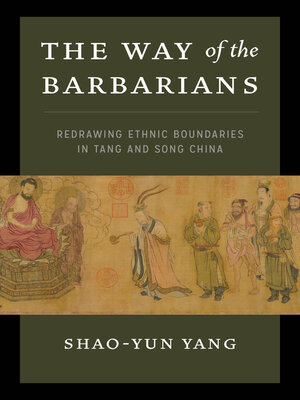The Way of the Barbarians
ebook ∣ Redrawing Ethnic Boundaries in Tang and Song China
By Shao-yun Yang

Sign up to save your library
With an OverDrive account, you can save your favorite libraries for at-a-glance information about availability. Find out more about OverDrive accounts.
Find this title in Libby, the library reading app by OverDrive.



Search for a digital library with this title
Title found at these libraries:
| Loading... |
Shao-yun Yang challenges assumptions that the cultural and socioeconomic watershed of the Tang-Song transition (800–1127 CE) was marked by a xenophobic or nationalist hardening of ethnocultural boundaries in response to growing foreign threats. In that period, reinterpretations of Chineseness and its supposed antithesis, "barbarism," were not straightforward products of political change but had their own developmental logic based in two interrelated intellectual shifts among the literati elite: the emergence of Confucian ideological and intellectual orthodoxy and the rise of neo-Confucian (daoxue) philosophy. New discourses emphasized the fluidity of the Chinese-barbarian dichotomy, subverting the centrality of cultural or ritual practices to Chinese identity and redefining the essence of Chinese civilization and its purported superiority. The key issues at stake concerned the acceptability of intellectual pluralism in a Chinese society and the importance of Confucian moral values to the integrity and continuity of the Chinese state. Through close reading of the contexts and changing geopolitical realities in which new interpretations of identity emerged, this intellectual history engages with ongoing debates over relevance of the concepts of culture, nation, and ethnicity to premodern China.






